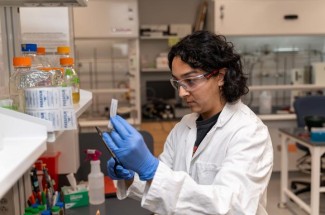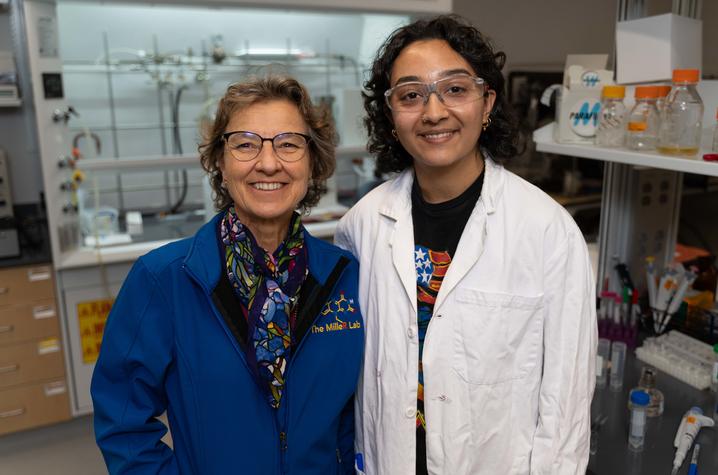Undergraduate research experience spurs Beckman Scholar to push boundaries of science

Before Hena Kachroo had even enrolled at the University of Kentucky and discovered its welcoming and warm research environment, she had a model for what it meant to feel valued in a community. Growing up, she’d attended cultural events among the Indian community in Lexington where her family’s culture, traditions and classical dance had collectively made a meaningful impression and created an important sense of belonging and network of support.
The primary contributors to Kachroo’s decision to apply to the Beckman Scholars Program, which provides 15-month mentored research experiences to exceptional students in chemistry and life sciences, were her research mentor and group who both pushed her and supported her start in the lab. They validated her capabilities and performance and provided the same communal environment Kachroo knew from experience would be impactful.
“My research involved investigating the electron transport flavoprotein (ETF) found in mitochondria which mediates the transfer of electrons in respiration,” explained Kachroo, a senior chemistry major in the College of Arts and Sciences and the Lewis Honors College. “However, anaerobic bacteria such as Acidaminococcus fermentans possess a different type of ETF, which is able to execute electron transfer bifurcation. A. fermentans ETF (AfeETF) couples two electron transfer reactions, producing a more energetic product than the starting material. This newly recognized mechanism for naturally conserving energy, at the level of electron flow, makes this protein a valuable source of insight for efforts to create new materials and devices for energy capture and storage.”
Kachroo’s project aimed to test small extensions to the ETF protein in an effort to hold the protein in one conformation and acquire the capacity to control the conformation of the ETF. Research on bifurcation in AfeETF is considered central to identifying biochemical solutions to challenges in sustainable energy. Producing a protein predominantly in a single conformation is the key to gaining access to critical new questions, such as whether a full catalytic cycle is possible in a single conformation. It may also open doors to previously impossible characterizations of individual conformations.
“Receiving guided one-on-one time with my mentor really helped me understand and conduct research in an intricate, step-by-step manner,” shared Kachroo. “I learned how to communicate my research results effectively to not only my mentor, Dr. Anne-Frances Miller, but also my research group and obtain feedback. By learning all these processes, I gained valuable skills to prepare me for a future career in research.”

Kachroo is continuing research through her Spring 2025 graduation, working on the project after the conclusion of the Beckman Scholars Program in the same capacity as she did during, with the goal of publishing the work and presenting at a conference such as the National ACS meeting. Her plans include graduate school, where she would like to study how space affects the biochemical reactions that govern life on Earth and eventually apply that to exploring the vast unknowns of space.
“I want to advance knowledge in chemistry to push the boundaries of science and use research to discover new implications for life beyond Earth," Kachroo said.




